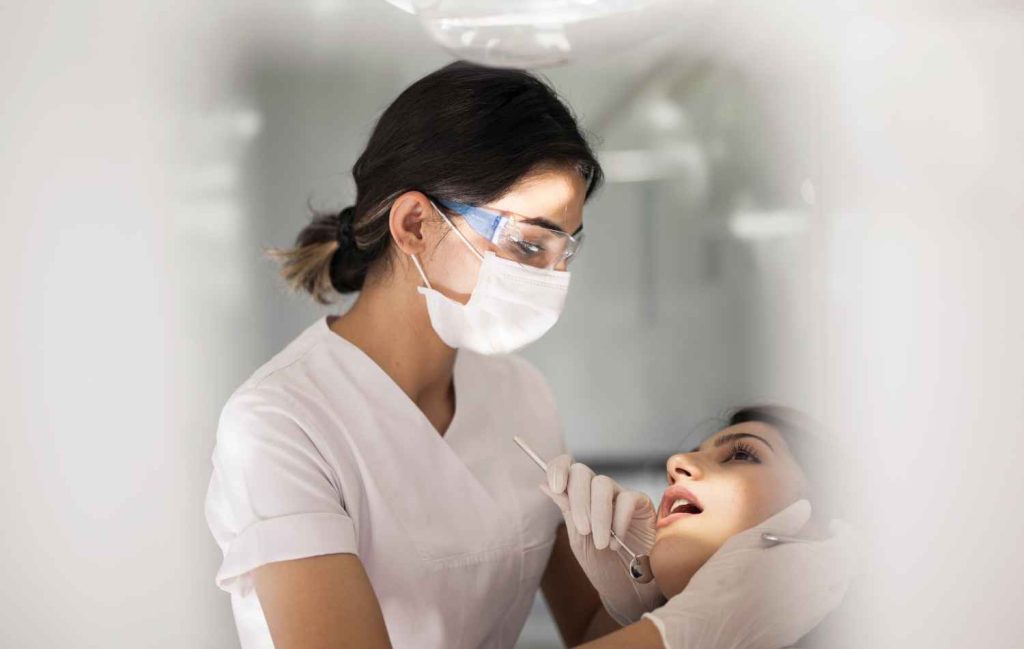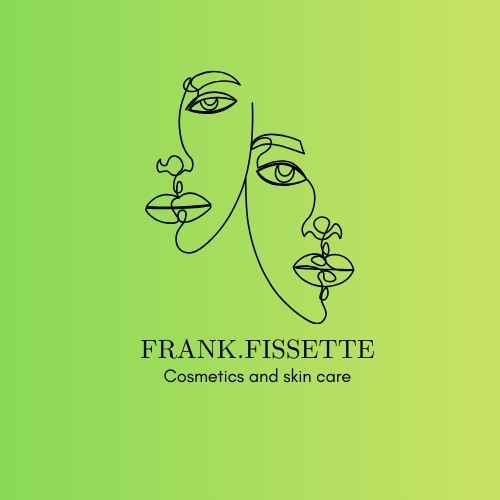
What Are the Main Hazards in a Dental Environment?
In a dental environment, there are several hazards that can pose risks to your eyes. One of the primary dangers comes from drops and splashes of saliva, blood, and other bodily fluids. These can carry infectious agents and cause serious eye infections if they come into contact with your eyes.
Another significant hazard is the particles generated during dental procedures. When using dental tools like drills and polishers, tiny debris can fly into the air and potentially into your eyes. These particles can cause irritation or even more severe injuries.
Chemicals used in dental treatments also present a risk. Disinfectants, bonding agents, and other substances can be harmful if they splash into your eyes. These chemicals can cause anything from mild irritation to serious eye damage.
Lastly, the bright lights used during dental procedures can strain your eyes over time. Prolonged exposure to these intense lights can lead to discomfort and long-term vision issues.
Understanding these hazards highlights the importance of wearing safety glasses in a dental setting. They provide a crucial barrier against these risks, ensuring that both dental professionals and patients are protected.
How Do Safety Glasses Protect Against Drops and Particles?
In a dental environment, you're constantly exposed to various hazards, including drops and particles. Safety glasses are your first line of defense against these risks. When you're performing procedures, there's a high chance that drops of saliva, blood, or other bodily fluids can splash towards your face. These fluids can carry infectious agents, making it crucial to shield your eyes.
Safety glasses act as a barrier, preventing these drops from reaching your eyes and potentially causing infections. It's not just about the liquids, though. Dental procedures often generate small particles. Whether you're drilling, polishing, or using ultrasonic tools, tiny debris can fly off and pose a risk to your eyes. These particles can cause irritation or even serious injury if they come into direct contact with your eyes.
By wearing safety glasses, you ensure that these particles are blocked, allowing you to focus on your work without worrying about getting hurt. The glasses are designed to fit snugly, offering a clear view while providing comprehensive protection. Some safety glasses come with additional features like anti-fog coatings, ensuring that your vision remains unobstructed even during lengthy procedures.
In essence, safety glasses are a simple yet effective tool to protect your eyes from the common hazards present in dental practices. By incorporating them into your routine, you not only safeguard your health but also set a standard for safety and professionalism in your workplace.
How Do Safety Glasses Shield the Eyes from Harmful Chemicals?
In a dental setting, you're often dealing with various chemicals that can pose serious risks to your eyes. From disinfectants to bonding agents, these substances are essential for dental procedures but can be harmful if they come into contact with your eyes. Safety glasses act as a vital barrier, ensuring that these chemicals stay far away from your sensitive eye tissues.
When you're working with chemicals like sodium hypochlorite or chlorhexidine, even a small splash can cause significant irritation or injury. Safety glasses are designed to cover your eyes completely, preventing any accidental splashes from reaching them. This is especially important when you're cleaning and disinfecting tools, as these chemicals are often used in concentrated forms.
Additionally, many dental procedures involve the use of adhesives and other bonding agents that can emit fumes. These fumes can be irritating to your eyes, causing discomfort and potentially more severe issues with prolonged exposure. Safety glasses help shield your eyes from these airborne particles, allowing you to focus on your work without the distraction of eye irritation.
Moreover, safety glasses are often equipped with coatings that can resist fogging and scratches, ensuring that your vision remains clear throughout the procedure. This not only protects your eyes but also enhances your ability to perform precise tasks without any visual hindrance.
In summary, safety glasses are a crucial component of your protective gear in dentistry. They provide a reliable shield against the harmful chemicals you encounter daily, ensuring your eyes remain safe and your vision unobstructed.
What Are the Additional Benefits of Wearing Safety Glasses in Dentistry?
Wearing safety glasses in dentistry goes beyond just protecting your eyes from drops, particles, and chemicals. These glasses enhance overall comfort during procedures. Many safety glasses come with features like anti-fog and scratch-resistant coatings, ensuring that you have a clear view even in the most intense situations.
Another significant benefit is the psychological aspect. When you wear safety glasses, you not only protect yourself but also set a professional standard for your practice. Patients see this commitment to safety and feel more at ease, knowing that their dental care provider prioritizes a safe environment.
Safety glasses also help reduce the risk of infections. By preventing splashes of saliva, blood, and other bodily fluids from reaching your eyes, you minimize the chances of contracting infections. This is crucial in maintaining a hygienic workspace.
In addition to these benefits, using safety glasses can improve your focus and efficiency. With the right protection, you can concentrate on the task at hand without worrying about potential eye injuries. This leads to better performance and patient outcomes.
In summary, safety glasses in dentistry are essential not just for eye protection but also for enhancing comfort, professionalism, infection control, and overall efficiency.
Why Is Consistent Use of Safety Glasses Important?
Wearing safety glasses in dental practices isn't just a one-time thing; it's a consistent habit that ensures everyone's safety. Imagine working on a patient and suddenly getting splashed with saliva or blood. Without safety glasses, those fluids can get into your eyes, potentially causing infections. Consistent use of safety glasses creates a barrier, keeping these hazards at bay.
But it's not just about the biological risks. Dental procedures often involve tiny particles flying around, whether from drilling, polishing, or other treatments. These particles can easily find their way into your eyes, causing irritation or even injury. By wearing safety glasses every time, you minimize this risk significantly.
Moreover, many dental treatments use strong chemicals like disinfectants and bonding agents. These substances can be harmful if they come into contact with your eyes. Consistent use of safety glasses ensures that you are always protected from these chemical hazards, making your work environment safer and more comfortable.
Another important aspect is setting a good example. When you consistently wear safety glasses, you promote a culture of safety within your practice. Your patients and colleagues will notice and be more likely to follow suit, creating a safer environment for everyone.
For more information on top-quality safety glasses and other dental safety equipment, check out https://www.admetec.com. This practice not only protects your eyes but also reinforces the importance of safety in dental care.
Conclusion: Ensuring Safety and Hygiene in Dental Practices
Safety glasses are a must-have in dental hygiene. They protect your eyes from drops, particles, and harmful chemicals, ensuring a safer work environment. By wearing them, you not only shield yourself from potential hazards but also promote a culture of safety in your practice. Remember, consistent use of safety glasses helps maintain both your safety and the hygiene of your dental clinic. So, make it a habit and keep your eyes protected every day.
